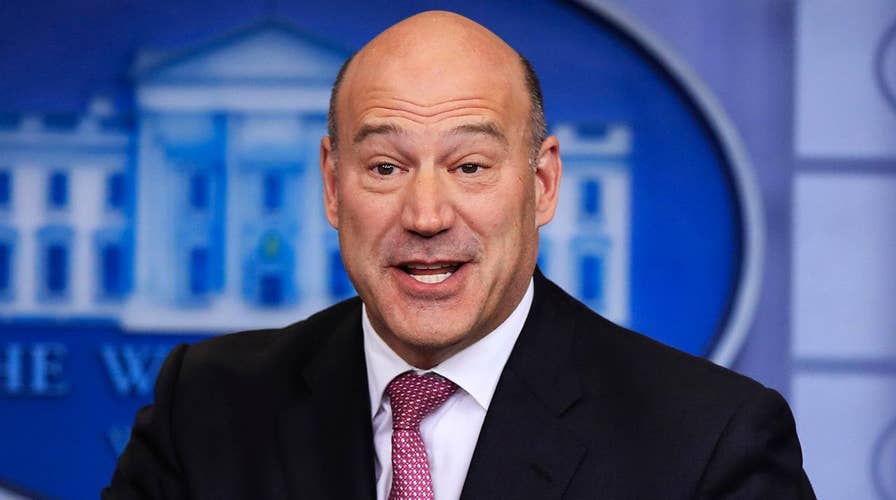Kurtz: How Cohn’s Resignation Fits the ‘Chaos’ Narrative
'MediaBuzz' host Howard Kurtz weighs in on how Gary Cohn’s resignation fits the ‘chaos’ narrative
The mainstream media are heartsick over the departure of Gary Cohn.
As the president’s chief economic adviser heads for the exits, the framing of most stories—not to mention the continuation of the “chaos” narrative—is that this development is truly bad news for the White House.
That comes against the backdrop of coverage that Trump’s sudden move to impose hefty tariffs on steel and aluminum is a wrong-headed decision that has greatly upset Paul Ryan and the Republican Party.
But here’s the thing: Donald Trump is doing exactly what he said he would do during the campaign, which he spent talking tough on trade. In fact, the real estate mogul has been complaining since the 1980s that other countries are taking America to the cleaners.
The tariff plan may be smart or self-defeating. And it’s certainly created a political storm. But why should Trump be pilloried for keeping a campaign promise, just because the former head of Goldman Sachs was opposed?
This is not a knock on Cohn, who brought stature to the administration. There is little doubt that his battle against tariffs was a last stand for him and that he felt blindsided by the move, even leaving aside his request that the president give him a bigger job. (It’s hard to imagine he wanted to be chief of staff, despite reports that Trump was considering him if he wanted to replace John Kelly).
I mean, does anyone remember this kind of media drama surrounding such Obama economic advisers as Austan Goolsbee and Jason Furman?
So how is the Cohn resignation playing?
Politico’s headline includes an anonymous quote that the departure will be a “disaster”:
“The number of bad ideas that have come though this White house that were thankfully killed dead — there are too many to count,” an unnamed White House official says. “With Gary gone, I just think, from a policy perspective, it means disaster.”
Politico says that “Cohn joins the long list of policy experts who have departed in recent months — a brain drain that leaves the president with fewer people around him who know how to get policy made, and how to stop Trump from moving ahead with unworkable ideas.
“Some worry the White House could return to the uncontrolled days immediately following Trump’s inauguration, when many West Wing jobs were still unfilled and former strategist Steve Bannon was writing executive orders with policy adviser Stephen Miller.”
Let’s just say Bannon’s departure wasn’t covered with quite the same tone.
The Washington Post says that “the departure of Cohn, a former president of Goldman Sachs who had been an interlocutor between the Trump administration and the business community, is the latest jolt to a White House that has been especially tumultuous in recent weeks and unable to retain some of its top talent.
“His resignation as National Economic Council director will leave the White House without a financial heavyweight who business executives and foreign leaders believed had served as a counter to Trump’s protectionist impulses and as a moderating force in other areas.”
This is an important story because, as the New York Times says, “trade has always been the iron curtain that divided Mr. Trump and establishment Republicans.”
The consensus among economists is that however many jobs may be saved in steel and aluminum, about triple that number will be lost in industries that rely on these imports.
But that is, in a nutshell, the free trade argument that has been resented for decades by workers in manufacturing who care more about their struggling industries than the overall health of the global economy. And making the populist case against such agreements helps explain how Trump won Michigan, Wisconsin and Pennsylvania, and thus the presidency.
Gary Cohn is a Wall Street guy. He may be right about this issue. But he doesn’t have to run for reelection in 2020, and the tariffs he fought play very well with the president’s base.












































